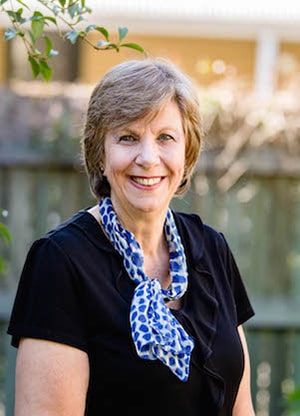Meet the Vision Therapist at Neilson Eyecare
EMSIE-Muriel De Kock
- Vision Therapist
- Bachelor of Education (Primary) – specialising in Early Childhood Development and Pre Primary Education
- Bachelor of Arts, Psychology (Honours)
- Specialist Teacher of Music and 2nd Languages
- Qualified Vision Therapist
- 30 years teaching and optical industry experience

Vision Therapy Toowoomba | Vision Therapy Highfields
Vision Therapy
For some people, developing visual skills can be particularly difficult, meaning slow progress in learning to read, hand-eye coordination and learning. Every one of us has to learn to coordinate their eyes. In the same way as a toddler learns to coordinate their arms and legs to walk.
For others there may be inefficiency in the eye muscles that causes problems with visual skills, such as a turned eye or lazy eye.
Vision training uses physical training activities to develop the vision skills that need improvement. Specific activities help with specific skills.
Our qualified behavioural optometrists will design a program, in consultation with our accredited vision therapist to work with the patient’s specific needs. The program may also use prisms, filters, eye patching and other specialized tools necessary to achieve the improvement in visual skill.
Vision Therapy – Who may Benefit?
Programs of therapy can be provided for the assistance of:
- Amblyopia (Lazy Eye)
- Strabismus (Eye Turns)
- Eye Tracking Deficiencies
- Convergence Insufficiency
- Eye Focusing Problems
- Head Injury Rehabilitation
- Dizziness/Balance Disorders
- Sports Enhancement
- Autism Spectrum
- ADD/ADHD
Vision Therapy Program
The first step is a consultation with one of our qualified behavioural optometrists who will conduct a series of tests and discuss the symptoms and desired outcomes.
For children, it is recommended that observations be sought from the child’s teacher. The following form can be printed and completed, then given to the optometrist either before or at the initial consultation. https://neilsoneyecare.com.au/teachers-observations-printable-pdf/
Vision training is just one of the tools our optometrists have for helping patients with their visual problems. For many it represents a stepping up or an additional intervention when progress is slow with initial interventions such as lenses, reading rulers and reading strategies.
Where vision training is considered beneficial a program will be developed.
Vision training requires a commitment in time and effort from patients, their family, the vision therapist and the optometrist. So it is not suggested lightly.
Time is spent explaining to a patient’s family why the specific training has been recommend before it commences. As with attaining any new skill, practice is important, and patients will get out of it what they put in to it.
Our vision therapy programs are in 8-week blocks. This will include a 40-minute session per week with our vision therapist Emsie. Emsie will complete activities during the session and teach patients and parents new activities to be performed at home. The patient is required to practice the activities 5 times for 15 minutes each week.
An average patient requires 2 blocks of vision therapy. However, every patient’s progress is different. The time taken to attain the desired outcome is dependant on the nature of the initial problem and how much commitment is put in to the exercise practice.
During the program, review appointments are scheduled with the optometrist, so that everyone involved can see how the patient is progressing.


